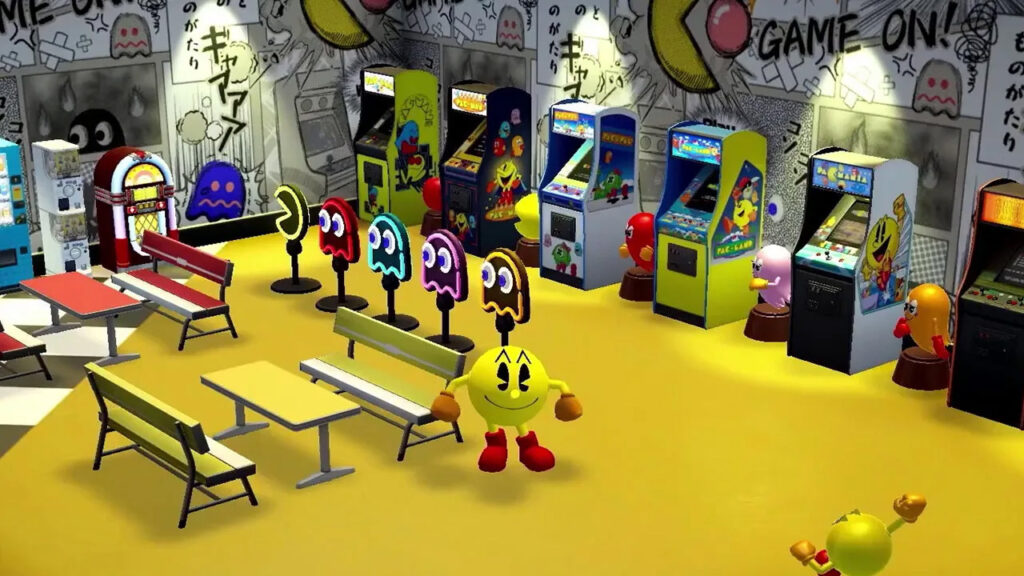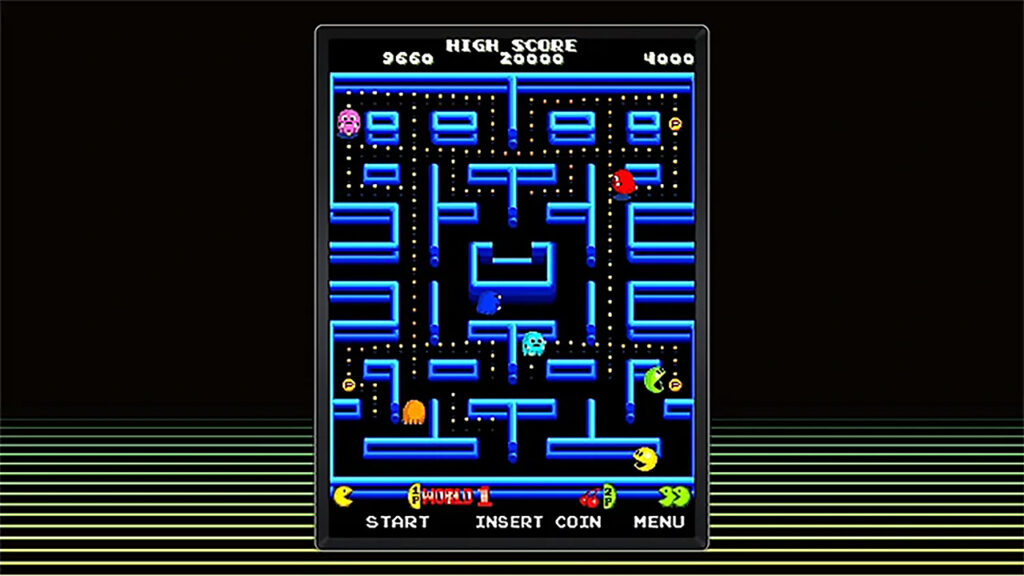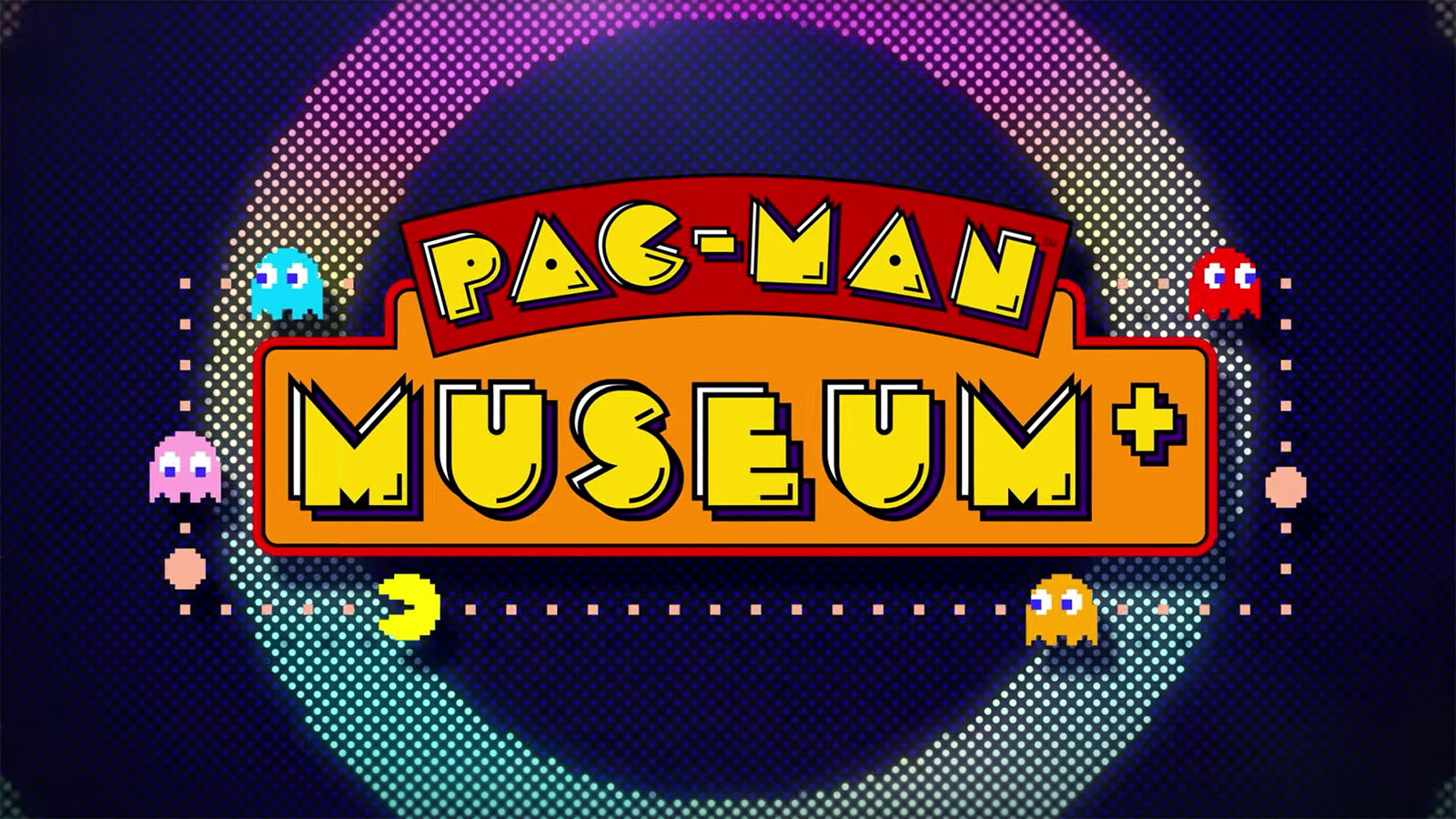In the 1980s, Japanese gaming company Bandai Namco Entertainment (formerly Namco) released the Pac-Man arcade game series. The maze chase game quickly found its way into home consoles and later grew into an entire gaming franchise with international fans. Recent game sequels such as Pac-Man 99 and the Pac-Man Championship Edition 2, in addition to licensed merchandise and TV adaptations, have ensured the video game icon remains relevant to next-gen audiences, while ensuring a total revenue in the billions. Now, Bandai is releasing a new addition to the Pac-Man collection: Pac-Man Museum+.
What happened

The Pac-Man Museum+ compilation features 14 classic Pac-Man games and a customization feature that allows players to personalize their own virtual arcade. Image: Bandai Namco
On May 27, 2022, Pac-Man Museum+ will launch across multiple platforms from Steam to PlayStation 4 to Xbox One, presenting 14 classic games including Pac-Man, Pac-Mania, and Pac-Man Battle Royale. Players can access a virtual leaderboard, play with friends, and compare scores with a global player base.
In addition to the featured games, the compilation joins the likes of virtual gaming worlds like Animal Crossing in allowing in-game customization. Users can design their own virtual arcade, which serves as the base for the array of games, using various in-game elements. Don’t like the floor layout? Change it. Want new wall designs? Buy it. The game uses a play-to-earn currency system to encourage gameplay and further customization.
Why it matters

The collection historicizes Pac-Man’s impact, while capitalizing on its existing IP and fanbase. Image: Bandai Namco
A sequel to (and upgrade of) 2014’s Pac-Man Museum, the new collection parallels projects such as the Xbox Museum and the planned Nintendo Museum in its effort to archive and record a gaming platform’s legacy, and capitalize on its existing IP and fanbase.
While no brick-and-mortar cultural institution, Pac-Man Museum+ deploys a critical attribute of any museum: a curation of culturally significant objects that visitors can engage with. The compilation’s personalization feature allows players to own their experiences versus having a generic and emotionless cookie-cutter experience. As legacy institutions begin developing virtual content, such gamified programs and customization (of audio tours, membership cards, and the like, for example) present opportunities to involve audiences in crafting and directing their own cultural experiences.
What they said
“Pac-Man is a cultural icon whose enduring popularity continually touches countless lives around the world. It’s truly amazing to be able to pull together a tribute collection featuring some of the most outstanding games in the over 40-year history of the Pac-Man series. We hope fans and gamers around the world will revisit Pac-Man and rediscover the bond they may have once shared with him.” — Dennis Lee, Senior Director, Pac-Man Business at Bandai Namco Entertainment America Inc.



